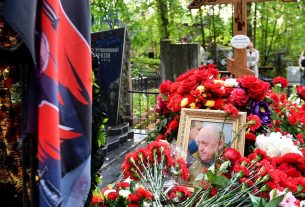Madame Chair,
I have the honour of delivering this statement on behalf of the following participating States: Albania, Andorra, Bosnia and Herzegovina, Canada, Georgia, Iceland, Liechtenstein, Moldova, Montenegro, North Macedonia, Norway, San Marino, Switzerland, Ukraine, United Kingdom, United States and the member states of the European Union, including my own country Denmark.
Madame Chair,
The International Day in Support of Victims of Torture provides us with an opportunity to reaffirm our strong commitment to preventing and eradicating torture and other cruel, inhuman or degrading treatment or punishment. Sadly, this commitment remains unfulfilled in the OSCE region, as civil society organisations, media, and other groups as well as international bodies still report the use of torture by a number of participating States. We stand in solidarity with all victims and survivors in the OSCE region, and around the world, as well as with their families and communities affected. Those responsible must be held to account.
Russia’s war of aggression against Ukraine has resulted in devastating humanitarian and human rights consequences. Members of Russia’s forces have reportedly committed “summary executions” of Ukrainian civilians; torture of civilians in detention through beatings, electrocution, and mock executions; and rape. This has been documented by various international mechanisms including the Moscow Mechanism report from April 2022. Furthermore, the latest Moscow Mechanism report and ODIHR’s monitoring in Ukraine have detailed Russia’s widespread and systematic use of torture and other abuses, including against civilian Ukrainian detainees.
We strongly condemn these violations of human rights and international humanitarian law.
Madame Chair,
The prohibition of torture is absolute and unconditional. All OSCE participating States have an obligation to prevent acts of torture, prosecute perpetrators, identify victims, and ensure effective redress. Notwithstanding, torture and cruel, inhuman, and other degrading treatment or punishment continue to be used, including in places of detention and during interrogation or police custody.
We as states must do more. In all our efforts, the needs of victims and survivors have to come first. We urge all participating States to adopt a holistic, victim-centred and gender-responsive approach, paying special attention to the views and needs of victims and survivors. This must inter alia be implemented in policy development and other activities relating to rehabilitation, prevention, and accountability for torture and other cruel, inhuman, or degrading treatment or punishment and gender-based violence, including conflict-related sexual violence. This also applies when investigating and documenting allegations of torture and other ill-treatment, including sexual violence, as inscribed in the Principles on Effective Interviewing for Investigations and Information Gathering, the so-called “Méndez Principles”.
We call upon participating States to take appropriate and effective legislative, administrative, judicial, and other measures to prevent torture and other cruel, inhuman, or degrading treatment or punishment and to apply international standards such as the United Nations Standard Minimum Rules for the Treatment of Prisoners (the Nelson Mandela Rules), the United Nations Rules for the Treatment of Women Prisoners and Non-custodial Measures for Women Offenders (the Bangkok Rules), the United Nations Standard Minimum Rules for the Administration of Juvenile Justice (the Beijing Rules) and the United Nations Rules for the Protection of Juveniles Deprived of their Liberty.
It is high time to honour our commitments, including the 2020 Tirana Ministerial Council Decision on the Prevention and Eradication of Torture and other Cruel, Inhuman or Degrading Treatment or Punishment, through effective implementation. Future generations will judge us against our deeds, not our words.
We call on all participating States to make good use of ODIHR’s assistance and its internationally recognised expertise in this field. In addition, we urge the participating States that have not yet done so to consider signing and ratifying the UN Convention Against Torture as well as its Optional Protocol.
Madame Chair,
While we as participating States bear the primary responsibility to eradicate torture, we would like to express our strong support for the tireless and important work of human rights defenders and civil society organisations working in all areas of anti-torture efforts. Civil society should always have the space to speak out and to contribute to the fight against all forms of torture and other ill-treatment without any risk of reprisal.
In closing, we jointly reaffirm our clear commitment to upholding the absolute prohibition of torture and to stepping up our efforts to end its use in the OSCE region. We will ensure that the topic remains high on the OSCE agenda, and we will continue our joint efforts to end impunity for acts of torture.
Thank you, Madame Chair.



